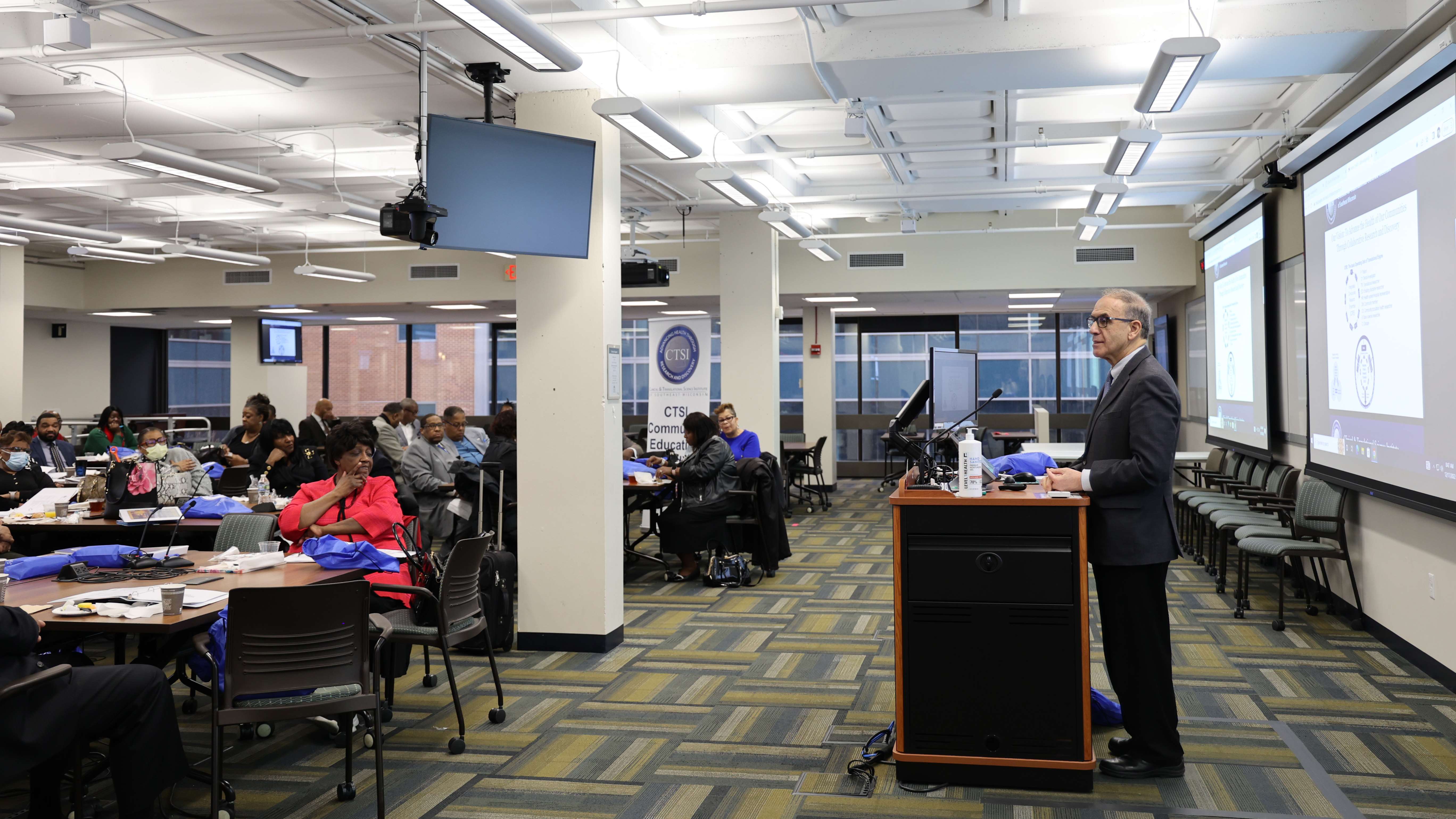About the Clinical and Translational Science Institute of Southeast Wisconsin
In 2010, we were awarded our first five-year $20 million Clinical and Translational Science Award from the National Institutes of Health. Now on our third competitive renewal, the grant continues to fund the ongoing work of the Clinical and Translational Science Institute of Southeast Wisconsin (CTSI), a consortium of eight regional organizations whose mission is to advance the health of the community through research and discovery.
Learn More About the CTSA Program
The CTSI is an innovative infrastructure to support and advance education, collaboration, and research in clinical and translational science.
Vision
To create a borderless, complementary and synergistic research environment in southeast Wisconsin to translate discoveries into better health of our citizens while simultaneously providing comprehensive educational and training programs to develop the next generation of Clinical and Translational Researchers.

Mission
The successful and rapid translation of fundamental discoveries into better health for our communities requires a clinical and translational science network that is robust, multidisciplinary, and national in scope.
The mission of the CTSI, a unique academic-community partnership between four area academic institutions (Medical College of Wisconsin, University of Wisconsin at Milwaukee, Milwaukee School of Engineering, Marquette University; three hospitals (Froedtert Hospital, Children’s Wisconsin; Zablocki VA Medical Center); and Versiti Blood Center of Wisconsin, is to develop an integrated, shared home for clinical and translational research, education and training, hallmarked by a borderless, collaborative, synergistic, and investigator/community/patient-friendly environment that is functionally integrated into local, regional and national CTSA networks.

Strategic Aims
To empower the southeast Wisconsin CTSA hub to play a major role in the clinical and translational research agenda of the nation.
To maximize the translational capabilities and impact of our CTSA hub and its investigators.
To create a mutually learning “Health Care Enterprise-CTSA – eco system” that facilitates and broadens the reach of our translational research engine into health systems and patient stakeholders to generate/test hypotheses and implement best practices.

The CTSI, which was founded in 2010, comprises of Children’s Wisconsin, Clement J. Zablocki VA Medical Center, Froedtert Hospital, Marquette University, the Medical College of Wisconsin (MCW), Milwaukee School of Engineering, the University of Wisconsin-Milwaukee and Versiti Blood Center of Wisconsin. The composition of the CTSI is unique nationally because of the engagement of academic institutions not affiliated with MCW. Using innovative mechanisms, CTSI members work to translate research discoveries more quickly into preventive, diagnostic and therapeutic interventions for patients. Consortium members share resources, technology, knowledge and expertise to work towards those goals.
Fewer than half of all US medical schools have received a CTSA award since the program’s inception in 2003, and there are currently more than 63 CTSA awards nationwide. This extremely competitive award reflects MCW’s role as a national leader in building academic and research partnerships to address the community’s greatest health needs. The collaborations and partnerships fostered through the CTSI already have paid off in innovation and translation of new technologies and advancements.
The CTSI is a highly respected and significant entity in our region and beyond, and has attracted exceptional researchers from across the country to the participating institutions. It is at the heart of what we do every day to promote collaboration, innovation and discovery as we seek to transform healthcare and the health of our citizens. It is a critical priority for MCW as we continue to differentiate ourselves through transformative research, discovery and preeminent scholarship. CTSI consortium members have excelled in sharing research resources, technology, knowledge and expertise to work toward common goals of excellence in healthcare. Our patients and communities throughout the region have benefited greatly from the many exceptional outcomes enabled by the vision of the CTSI, which is serving as a beacon for outstanding researchers across the country and giving hope to those afflicted by chronic and acute diseases.
The CTSI is a borderless, synergistic biomedical research enterprise that is accelerating the translation of research discoveries into new and improved medical treatments.

Join Us
Become a CTSI member and join us in advancing clinical and translational science.
Become a CTSI Member

CTSI Board of Directors
The CTSI Board of Directors is comprised of six leaders representing CTSI partner institutions.
Meet the CTSI Board of Directors
CTSI Executive Committee
The Executive Committee provides overall guidance to the CTSI.
Meet the CTSI Executive Committee
CTSI External Advisory Committee
The EAC reviews CTSI programs and assess milestones.
Meet the External Advisory CommitteeContact Us
Clinical and Translational Science Institute of Southeast Wisconsin
Medical College of Wisconsin
8701 Watertown Plank Rd., Suite M1350
Milwaukee, WI 53226
(414) 955-8200
(414) 955-0050 (fax)


